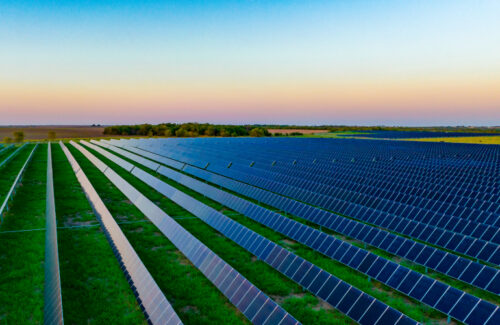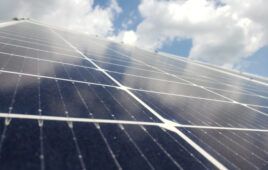The United States has officially exceeded 5 million solar installations, marking another milestone just eight years after the nation reached one million installations in 2016 — a milestone that took 40 years to achieve following the first grid-connected solar installation in 1973.

Credit: Lightsource bp
According to data released by the Solar Energy Industries Association (SEIA) and Wood Mackenzie today, over half of all U.S. solar installations have come online since the start of 2020 and over 25% have come online since the Inflation Reduction Act became law just 20 months ago. These systems are installed on homes, businesses and in large ground-mounted arrays across the country.
“Solar is scaling by the millions because it consistently delivers on its promise to lower electricity costs, boost community resilience and create economic opportunities,” said SEIA president and CEO Abigail Ross Hopper. “Today 7% of homes in America have solar, and this number will grow to over 15% of U.S. homes by 2030. Solar is quickly becoming the dominant source of electricity on the grid, allowing communities to breathe cleaner air and lead healthier lives.”
Despite state policy changes, market trends continue to suggest significant growth in states across the country. SEIA forecasts that solar installations in the U.S. will double to 10 million by 2030 and triple to 15 million by 2034.
The residential sector accounts for 97% of all solar installations in the U.S. This sector has set annual installation records for five consecutive years and 10 of the last 12 years.
Today, 11 U.S. states and territories have over 100,000 systems installed.
California leads the nation with 2 million solar installations, but recent policy decisions in the state have harmed the rooftop solar market. Several other states are seeing rapid growth. Illinois was an emerging market with only 2,500 solar installations in 2017, and today, the state is home to more than 87,000 solar systems. Florida is another market experiencing substantial growth, increasing from 22,000 installations in 2017 to 235,000 installations today.
By 2030, 22 states or territories are expected to exceed 100,000 solar installations. The United States now has enough solar installations to cover every residential rooftop in the four corners states of Colorado, Utah, Arizona, and New Mexico.
News item from SEIA





Tell Us What You Think!